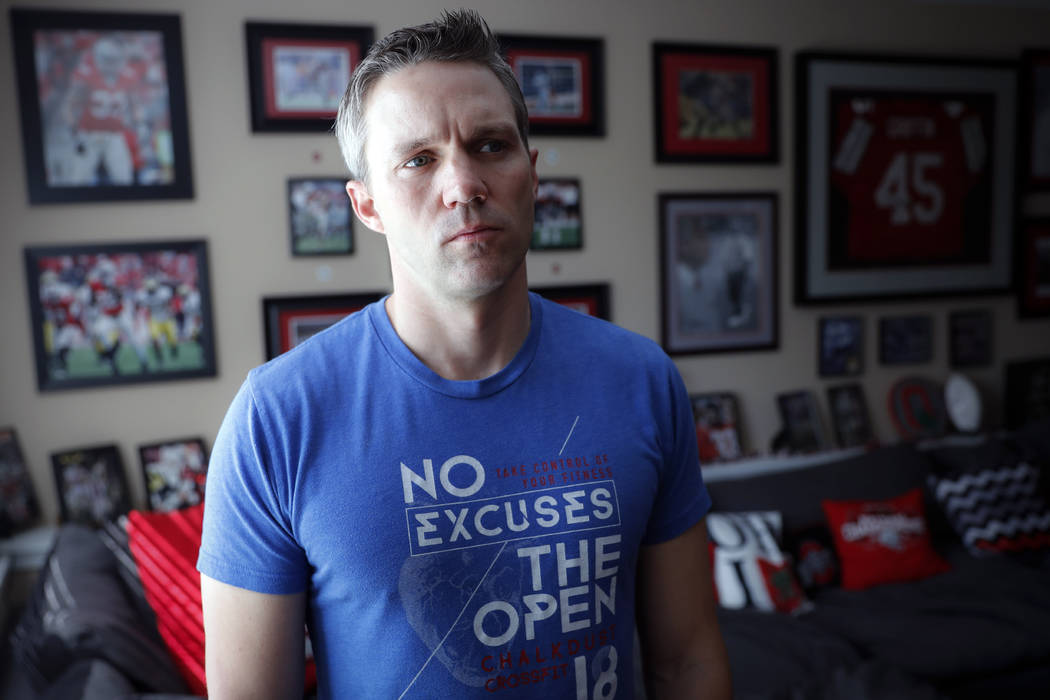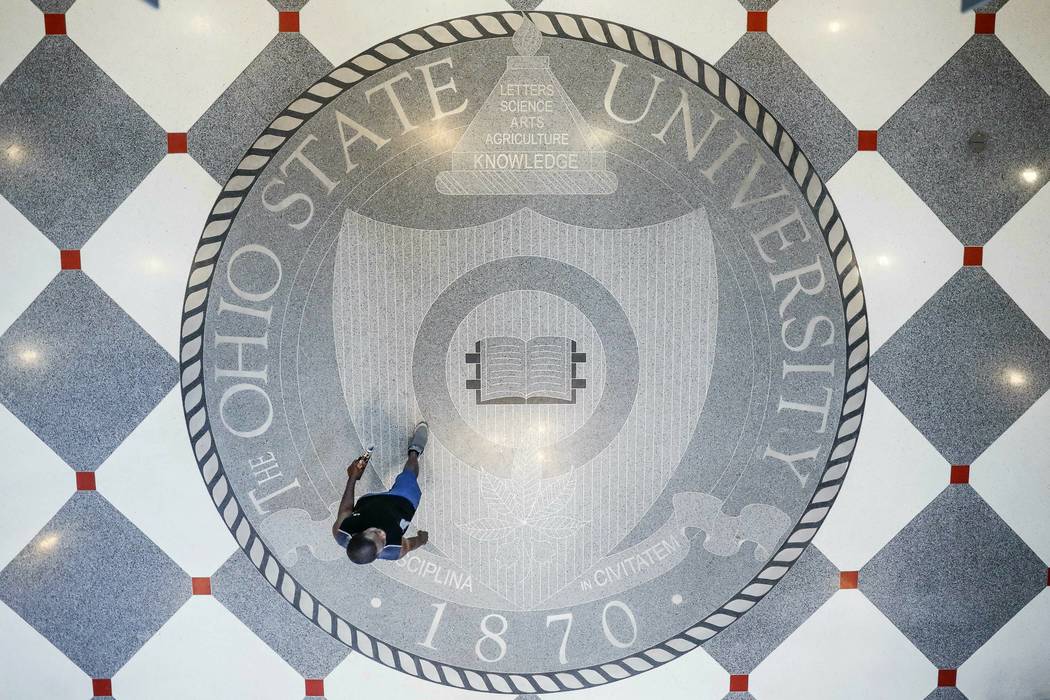Governor orders review of medical board in Ohio State abuse
COLUMBUS, Ohio — Gov. Mike DeWine declared the late Ohio State University team doctor Richard Strauss a monster Monday as he ordered a review of the state medical board’s handling of his case decades ago and called for lawmakers to lift the statute of limitations on rape charges.
The Republican governor signed an executive order at a Statehouse news conference creating a group to review a complete, unredacted version of an investigative report released last week to see what the board knew about Strauss, who took his life in 2005, and when. Portions of the report involving the board’s actions had been blacked out.
“The question we’re faced with is: Did the State Medical Board of Ohio take appropriate action regarding Richard Strauss?” DeWine said.
The report conducted by a law firm and released by the school Friday found that Strauss sexually abused at least 177 male students from the 1970s to the 1990s. A lawyer said Saturday that some members of the football team who were Strauss’ victims are not included in that total.
University officials at the time would have been obligated to report felony offenses to police, said Sarah Ackman, a legal adviser to DeWine. The governor said that did not appear to have happened.
The medical board conducted a confidential investigation into Strauss in 1996. The board never disciplined him and has refused to disclose details, citing confidentiality rules. Ohio State went to court to make the information public as part of the Strauss report but was unsuccessful.
DeWine said that calling for the review does not imply the board mishandled the case but that it’s impossible to know without investigating further. He also has asked the state’s Changing Campus Culture initiative to expand its work from focusing on prevention of student-on-student sexual assault to include faculty and staff members.
The board said in an emailed statement that it welcomes DeWine’s group.
“Since the start of Ohio State’s investigation, we have wanted to cooperate and share information but had to do so within the constraints of the law,” it said. “The board is thankful that the executive order will provide an opportunity to further evaluate the current laws and processes.”
The governor also called for state lawmakers to lift the statute of limitations on all rape cases, and to extend time limits for bringing charges in many other types of sexual crimes. The idea has failed to gain traction in the past, but DeWine said he believes the Strauss case can go far to persuade reticent legislators.
“How furious would the public be today if this man was still alive and could not be prosecuted?” he asked.
DeWine, a former prosecutor and state attorney general, argued the law should be different in such cases because “we just know from all the evidence and all the studies that many times victims never come forward, many times victims can’t come forward.”
DeWine, calling Strauss a “monster,” said Monday that there is still more to know and more to do.
Brian Garrett, a former nursing student who witnessed and experienced Strauss’ abuse, said after the news conference that he is hopeful DeWine is committed to help victims heal.
He asked the governor at the news conference to support separate legislation that would allow Strauss’ victims the legal opportunity to hold the university accountable for Strauss’ sexual abuse. DeWine responded that he would review the bill.
“I haven’t slept much in a year, and all the other victims are the same. My work life’s been affected, my personal life’s been affected. I am done; I am ready to move on. This is a good step, and I would love to see Gov. DeWine get the legislators to put through our House bill and sign off on it.”
The group DeWine created will be chaired by state Public Safety Director Tom Stickrath. It will have as many as 17 members, including representatives of state and local law enforcement; the attorney general’s office; the state auditor’s office; the state health and mental health departments; a county coroner; a county prosecutor; and a victim advocate.
The panel is to report its findings to the governor and the Legislature by Aug. 1.
The law firm’s report found that Strauss engaged in a pattern of sexual abuse of male students from the 1970s to the 1990s — groping, ogling and violating them in examination rooms, locker rooms, saunas and showers, at the student health center and at an off-campus clinic.
The investigation determined that various university officials knew what Strauss was doing and did little to stop it. University President Michael Drake expressed shock and heartbreak and issued a public apology for “consistent institutional failure” during Strauss’ employment.
The Strauss case has been compared to that of ex-Michigan State University sports doctor Larry Nassar, who was accused of molesting at least 250 women and girls and is serving what amounts to a life sentence.



















